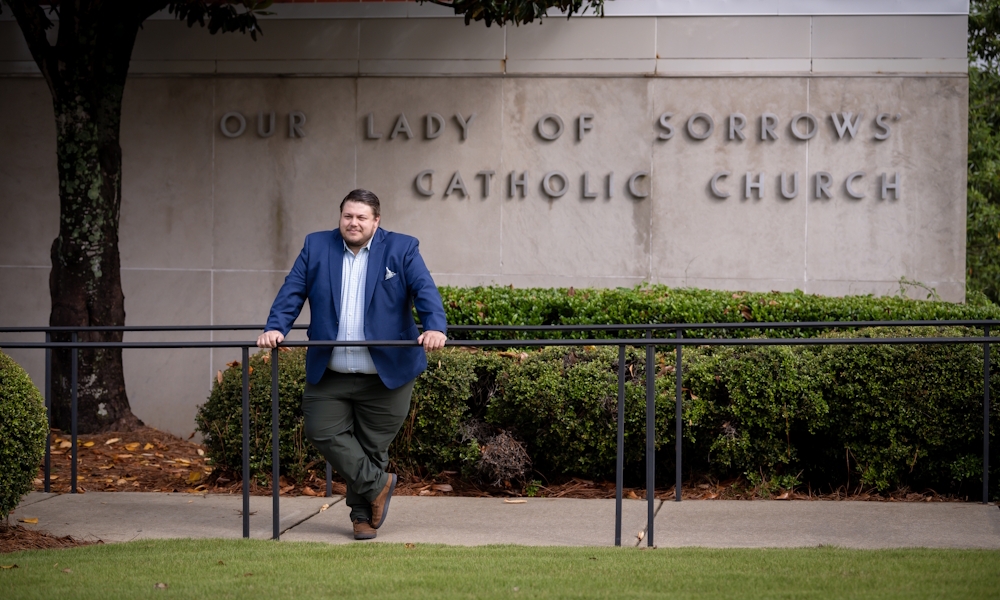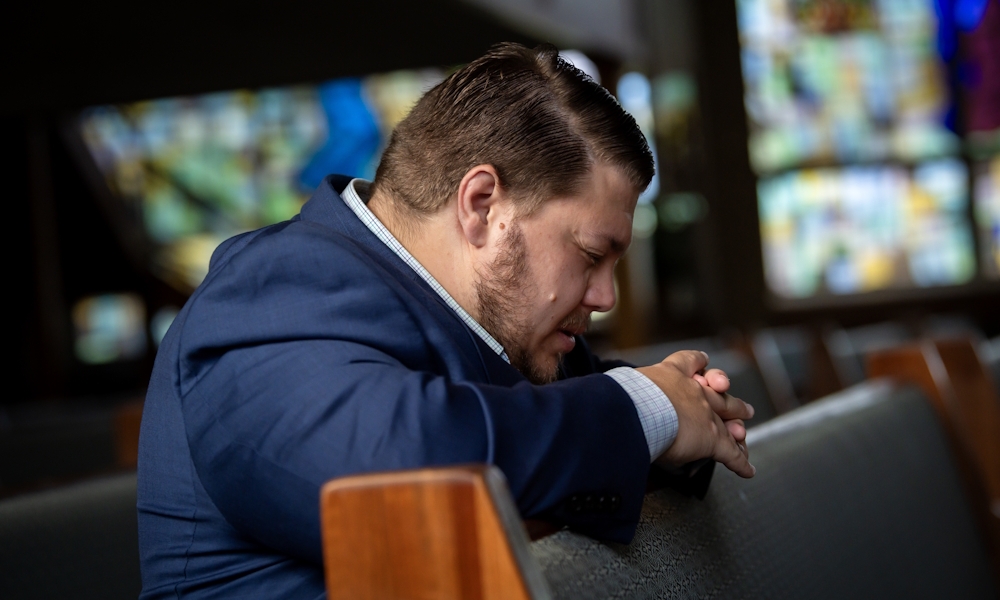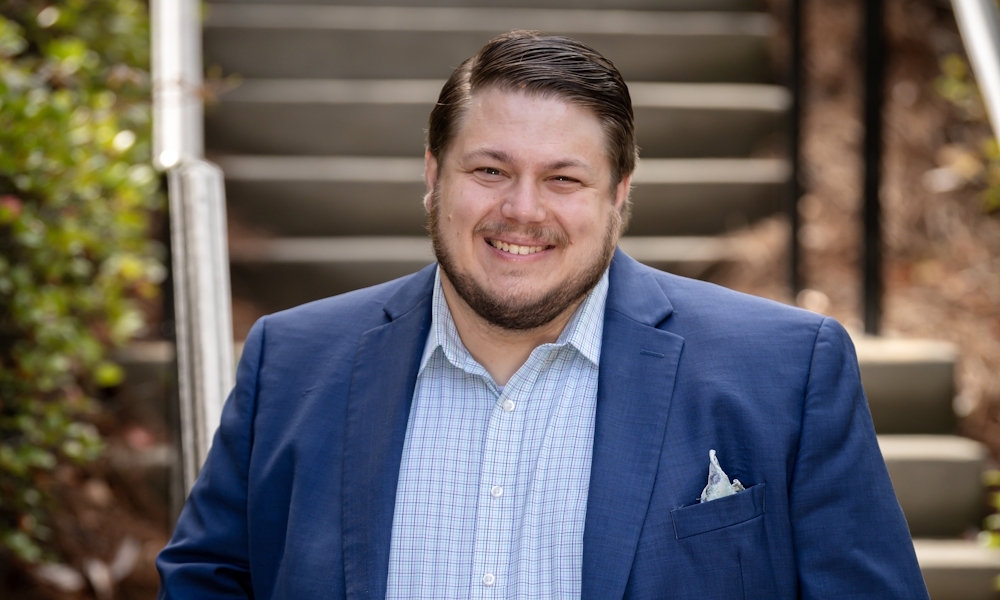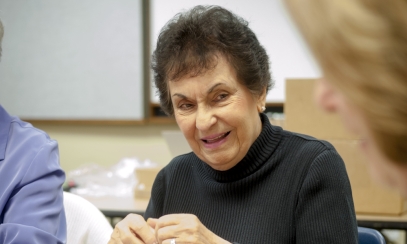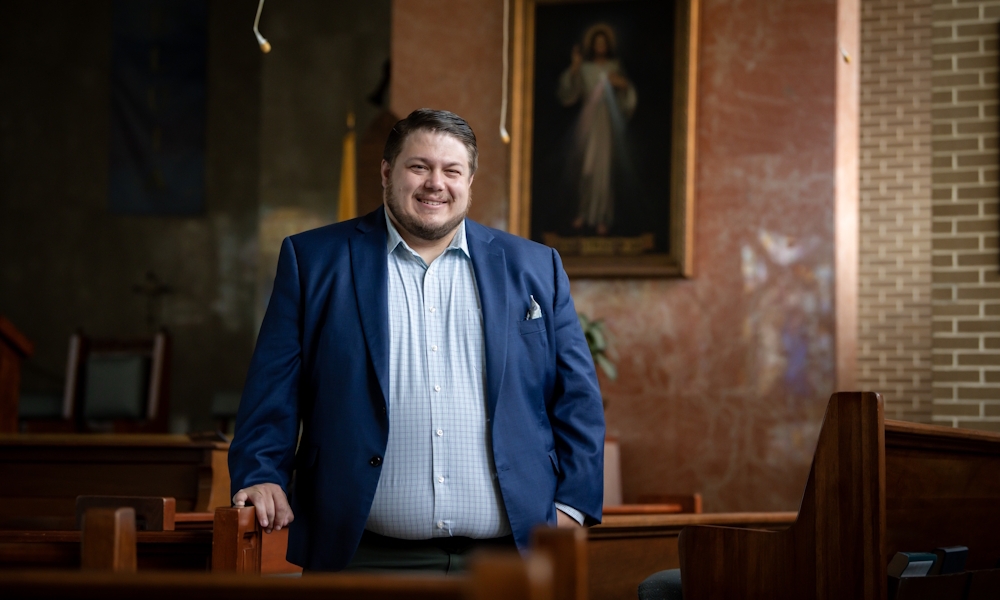
Go and find the ‘one’
“Acquire the spirit of peace and a thousand souls around you will be saved.”
“Acquire the spirit of peace and a thousand souls around you will be saved.”
Those profound words are attributed to St. Seraphim of Sarov, a saint canonized by the Eastern Orthodox Church. The words also create the foundation of Grant Wyatt’s service to the Catholic Church. Wyatt, the current high school youth minister at Our Lady of Sorrows Catholic Church in Homewood, pondered over those words, trying to apply them to his ministry. As he did so, he asked himself, “How do we foster that peace in our youth?” The answer, however, required another question to be answered first: “How do I foster that in myself?”
“If I don’t have hope and if I don’t have peace,” Wyatt notes introspectively, “then how can I foster hope, peace, love, and joy in our youth?”
Naturally, the answer to that question is simple: It’s impossible. “I can’t give what I don’t have,” says Wyatt. So, what can be done? For Wyatt, he contends the solution is straightforward: discipleship. He personally strives to deepen his relationship with Christ, using interior prayer to allow “the water of the Spirit” to mold him so that he can “be docile to the Lord’s hands.”
Those profound words are attributed to St. Seraphim of Sarov, a saint canonized by the Eastern Orthodox Church. The words also create the foundation of Grant Wyatt’s service to the Catholic Church. Wyatt, the current high school youth minister at Our Lady of Sorrows Catholic Church in Homewood, pondered over those words, trying to apply them to his ministry. As he did so, he asked himself, “How do we foster that peace in our youth?” The answer, however, required another question to be answered first: “How do I foster that in myself?”
“If I don’t have hope and if I don’t have peace,” Wyatt notes introspectively, “then how can I foster hope, peace, love, and joy in our youth?”
Naturally, the answer to that question is simple: It’s impossible. “I can’t give what I don’t have,” says Wyatt. So, what can be done? For Wyatt, he contends the solution is straightforward: discipleship. He personally strives to deepen his relationship with Christ, using interior prayer to allow “the water of the Spirit” to mold him so that he can “be docile to the Lord’s hands.”
Being molded into a disciple of Christ offers many opportunities. For Wyatt, chief among those opportunities is the chance to become a witness to the grace in his life. He strives to proclaim, “I live this way because I know Jesus.” In sharing with kids how the Lord is working in his life, he is “putting his money where his mouth is,” which he maintains is the first step of discipleship.
Wyatt believes the prevailing view of Church ministry doesn’t necessarily equate to discipleship. He asserts, “I think that’s not a good thing,” especially in youth ministry, because the youth aren’t always given credit for how observant they are. Kids, everyone for that matter, will only listen if they feel they can trust what is being said.
They know if something or someone can be trusted, and they know if they are cared for or not. For that reason, Wyatt puts a great deal of emphasis on caring for others. When the youth are confident that they matter, it goes a long way to creating in them an open heart and mind.
Looking back to his childhood, he remembers an older couple who opened his heart to Christ. “They would just talk to me at church every single week,” he recalls. “It’s not rocket science. … When you see teenagers, just go talk to them and get to know their families … that’s discipleship.”
While discipleship might not be “rocket science,” many in the Church, particularly of older generations, rely on the notion of a boomerang effect. For those unfamiliar, the effect refers to the idea that young people drift away from the Church only to return when they begin a family. Wyatt acknowledges the tendency was very prevalent some years ago, but the present-day Church is facing the stark reality that young people are leaving without any intention of ever coming back.
Many go to Protestant churches where they feel like they are a part of something: They feel like they belong. “They buy their shirts. They buy their hats. They buy whatever else because they feel they belong to that community,” he explains. Friendship and belonging are strong bonds, and what the Protestant churches have come to realize is that when those bonds are forged, it is more difficult to leave them behind.
To better understand how Protestant churches are able to forge those bonds, Wyatt looks to St. Paul, the patron of the Diocese of Birmingham in Alabama. “He would go into cities and towns and then he wouldn’t evangelize immediately,” Wyatt points out. “He would learn the culture of the city, meeting them, knowing where they are, knowing what they’re passionate about, and seeing what’s important to them.”
Applying the same method to his ministry, he gives the example of comparing sports to Church involvement. More often than not, sports tend to take the top spot, even over sacramental classes. Instead of instinctively questioning misplaced values and priorities, Wyatt suggests the response should be making an attempt to understand. “We should not demonize them or point the finger at them,” he advises. “Instead, we should try to understand why this or that is more important.”
For Wyatt, following in St. Paul’s footsteps means the gauge of his success can’t always be directly correlated to how many people show up for youth group. Rather, success needs to be determined by the number of people being discipled. “Youth group isn’t for everybody,” he admits, “and my job as a youth minister is to minister to youth, not to just run a youth group.”
Ministering for Wyatt can take many different forms. Whether it be going to a soccer game, going to a baseball game, attending a play, inviting a group to dinner, or simply grabbing a cup of coffee with someone, meeting the youth where they are helps create a community of which they can be a member. In his eyes, the hope of the Church is that all of God’s faithful will choose to go and disciple. “It’s a decision that every Catholic has to make,” he observes.
“Jesus is the Good Shepherd and goes to His sheep,” Wyatt shares. “If we’re going to be like the Good Shepherd, we have to do what the Good Shepherd does. He leaves the 99 to go find one. Oftentimes, it’s really comfortable for us as a Church to stay with the 99.”
Most assuredly, humans are creatures of comfort, yet the faithful, like Wyatt, should seriously consider St. Seraphim’s words. Does the willingness to foster a spirit of peace exist within our own hearts? If not, then are we willing to come to know our Lord more deeply? If the willingness does, in fact, exist, then we must strive to nurture the love of Christ in our hearts, fulfilling our call to go and make disciples, even if it means leaving the 99.

